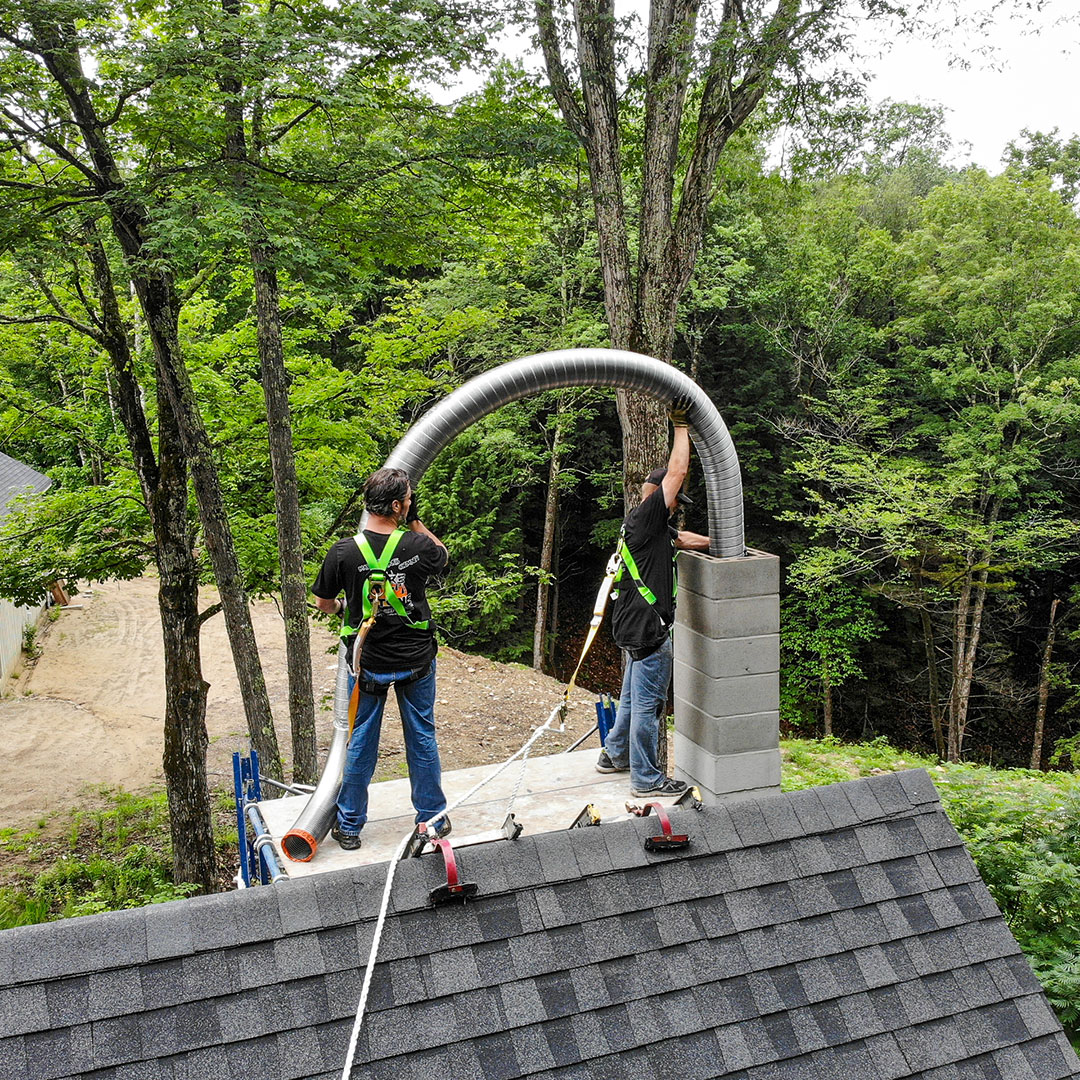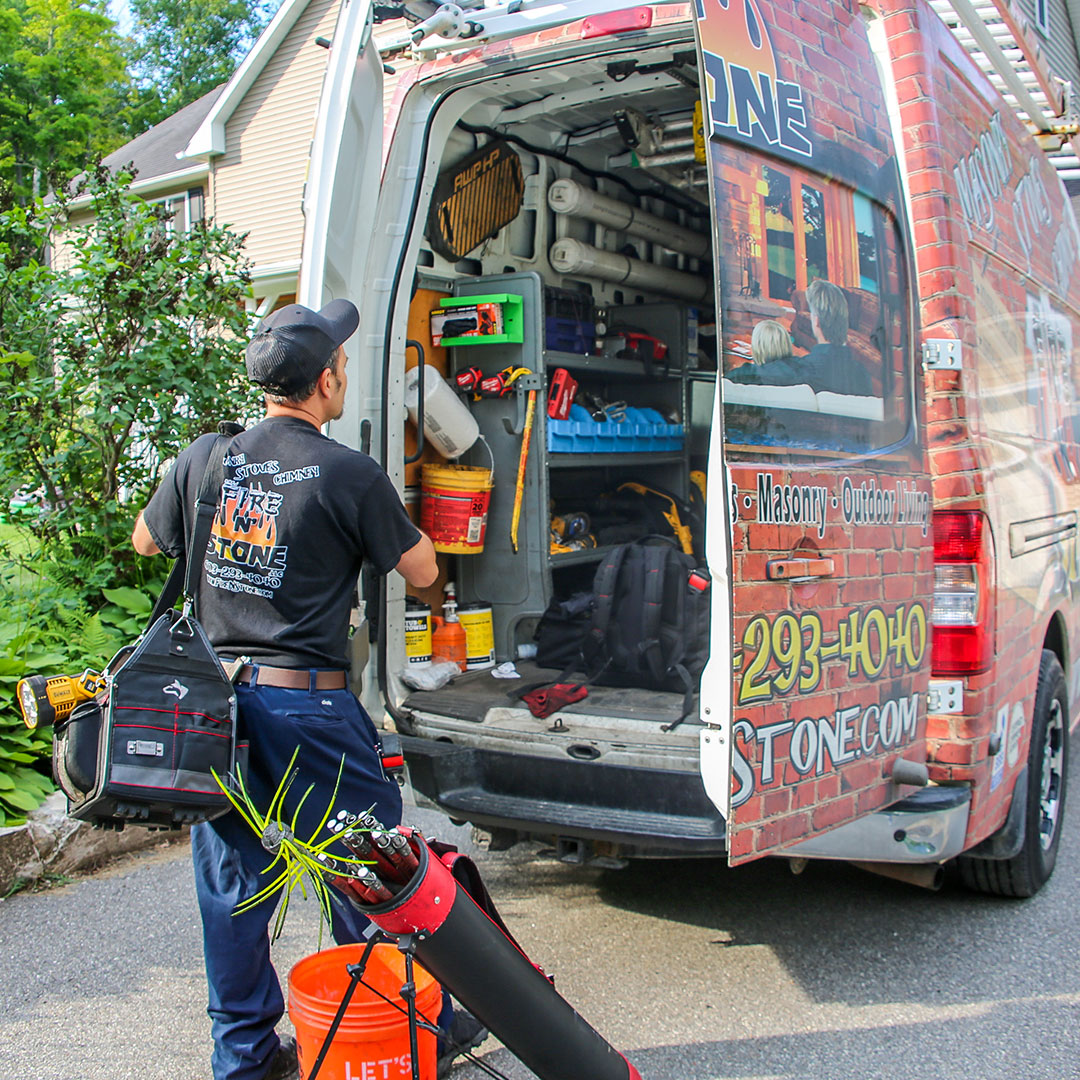Benefits of Insulating Your Chimney Liner
The temperature is dropping, and winter is right around the corner, which means you’ll want to light that first fire of the season if you haven’t already. However, if you’ve not had your flue liner insulated, you should consider doing it now, and in this blog post, we’ll tell you why.
Liner insulation is relatively inexpensive, and while you can do it yourself, it’s best to hire a professional to ensure a good fit for safety.

What is an Insulated Chimney Liner?
An insulated chimney liner is a protective layer installed inside the chimney to make it safer and more efficient. A typical liner is made from stainless steel or aluminum, and the insulation wraps around it like the insulation you put on your water pipes to prevent freezing.
Benefits of Insulation
Increased Heating Efficiency
The main benefit of insulating your flue liner is to improve your fireplace’s heating efficiency. Chimneys vent smoke and gases out of the home, and if they’re not adequately insulated, you can lose a significant amount of heat energy through the chimney. Protecting your flue liner helps retain heat, providing more warmth and using less fuel.
Reduced Fire Risk
One of the lesser-known benefits of insulating the flue liner is the reduced fire risk. A properly insulated chimney liner protects the home’s combustible elements from ignition under the high temperatures flowing through the chimney.
Creosote Prevention
Creosote is a highly flammable substance that builds up in chimneys, especially when burning wood. This buildup occurs faster when the flue gases are cooler, which is common in an uninsulated chimney. Insulation maintains a higher temperature, reducing condensation and limiting creosote buildup. Not only does creosote present a fire risk, but it can emit odors, making your house smell like an ashtray.
Reduced Moisture Issues
Moisture is the number one enemy of masonry structures, including your chimney. In uninsulated chimneys, the temperature difference between the inside and outside can cause condensation, leading to moisture issues. Moisture can damage the chimney and flue liner and spur mold and mildew growth. Insulation keeps temperatures higher, reducing condensation and most moisture issues.
Longer Chimney Lifespan
Rebuilding a chimney is expensive, so it’s in your best interest to do everything possible to make it last as long as possible, and insulating the flue is an excellent way to do it. By preventing moisture and creosote and the problems that come with them, you can extend your chimney’s lifespan and reduce costly repairs down the road.
 Environmental Benefits
Environmental Benefits
Improving your heating system for higher efficiency means less fuel consumption and reduced greenhouse gas emissions. If you want to make your home more “green,” insulating the chimney liner can help.
Call Fire N’ Stone
Whether you need flue liner insulation, chimney inspection, cleaning, repairs, or are interested in a new fireplace or stove, we’re the local professionals you can trust. We have over 13 years of experience and never subcontract our work. Our technicians are fully trained and certified, and we use the highest quality products for every project, so you can be sure you’re getting the best at the right price.
Visit our 3,400-square-foot showroom at 539 Laconia Rd., Tilton, NH, or call us at 603–293–4040 to schedule an appointment.





